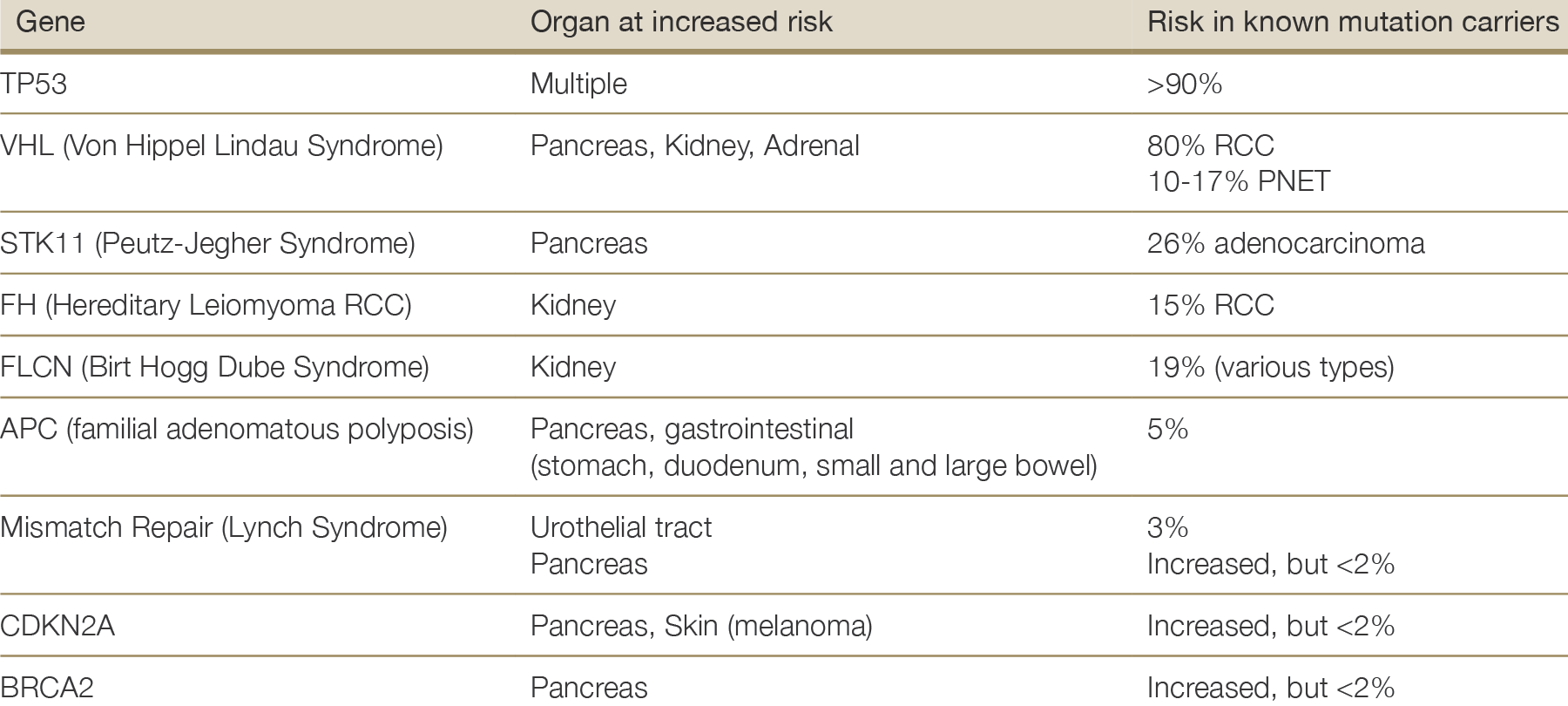Appendix K
Family history of cancer and cancer genes
Donor assessment should include a history of genetic testing identifying a cancer predisposition mutation in the donor or their first-degree blood relatives. The presence of such a mutation may indicate an increased risk of occult malignancy in the donor, or an increased risk of cancer developing in the donated organ during the lifetime of the recipient. The level of risk will vary according to the specific gene and the specific organs donated (see Table K1).
Where no specific mutation has been identified in the individual or their family, the interview should also determine if there is a family history of cancer where:
Multiple cancers have been diagnosed at young age
There are multiple cases of the same type of cancer or patterns indicative a cancer predisposition syndrome
Multiple cases of rare cancers
Consideration should be given to investigation of donors with a known cancer predisposition genetic mutation for occult malignancy. The risk of occult malignancy will vary depending on the gene, the age of the donor and previous screening or risk reducing strategies. There are no data to determine the risk of malignancy in transplanted organs from donors with a cancer predisposition gene.
Further advice as to the likelihood of a genetic susceptibility syndrome and the potential risk of malignancy in donated organs may be sought from a familial cancer service. See https://www.genetics.edu.au/genetic-services/cancer-genetics-clinics for services in Australia/New Zealand.
Table K1: Risk of malignancy in known mutation carriers for cancer predisposition genes and affected transplant organs
